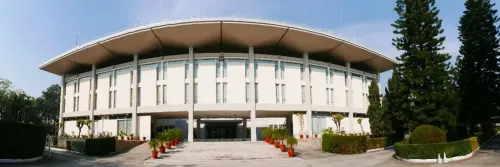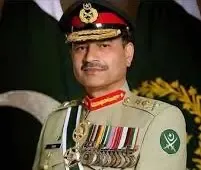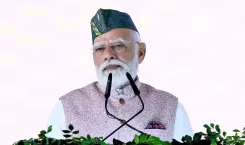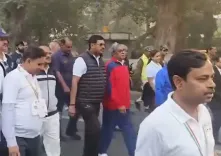What Steps Is President Lee Taking to Address Economic Challenges?
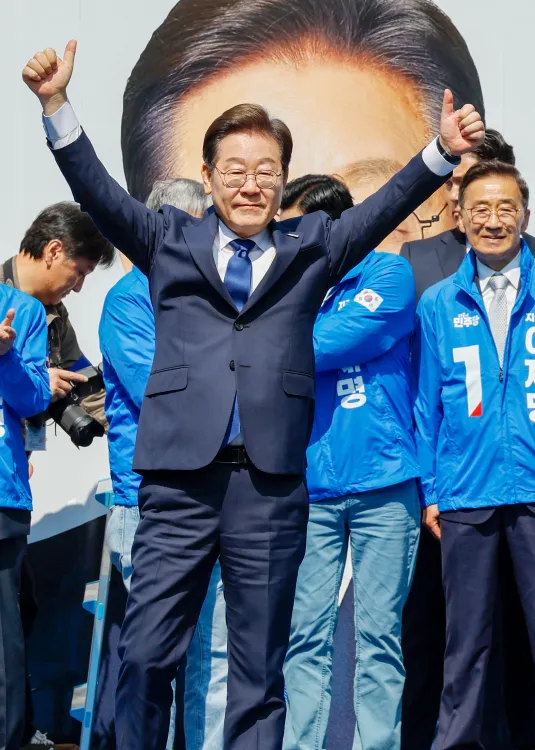
Synopsis
Key Takeaways
- Establishment of an emergency task force to tackle economic challenges.
- Commitment to introducing an additional budget of 30 trillion won.
- Focus on revitalizing the economy and improving public livelihoods.
- Significant attention on trade negotiations with the U.S. to secure favorable terms.
- Anticipated impact on small businesses through budget allocations.
Seoul, June 4 (NationPress) President Lee Jae-myung has mandated the establishment of an emergency task force to tackle economic issues, marking his first executive action since assuming office on Wednesday, according to his spokesperson.
This initiative aligns with a key economic policy commitment from his campaign, as reported by Yonhap news agency.
At a campaign event last week, Lee emphasized that revitalizing the country’s lagging economy and enhancing the quality of life for citizens would be his utmost focus upon election.
He has also pledged to introduce an additional budget of no less than 30 trillion won (approximately $21.77 billion), leading to speculation that the task force will concentrate on formulating this supplementary budget.
In an interview with MBC radio, Lee Han-jo, the head of the Democratic Research Institute who is anticipated to lead the presidential policy office under Lee, indicated that a considerable share of the extra budget aimed at improving livelihoods will likely be directed towards the implementation of regional prepaid voucher programs to assist small businesses.
Additionally, Lee has scheduled a separate working-level meeting on public safety for early Thursday, which will include local government officials.
Confronting the dual challenges posed by the U.S. aggressive tariff strategies and sluggish domestic demand, the President is expected to prioritize securing a favorable trade agreement with Washington and implementing actions to rejuvenate the stagnant economy through supplementary budgets and the advancement of high-tech industries, experts suggest.
The most urgent matter for Lee remains trade discussions with U.S. President Donald Trump, as Washington’s extensive tariff policies have negatively impacted South Korea’s trade-oriented economy.
The new administration is expected to finalize negotiations with the U.S. before July 9, when Trump's 90-day pause on elevated global tariffs, including a 25 percent tax on South Korea, is due to end. Seoul and Washington have agreed to strive for a comprehensive “package” agreement encompassing trade and related matters prior to the conclusion of the 90-day timeframe.

